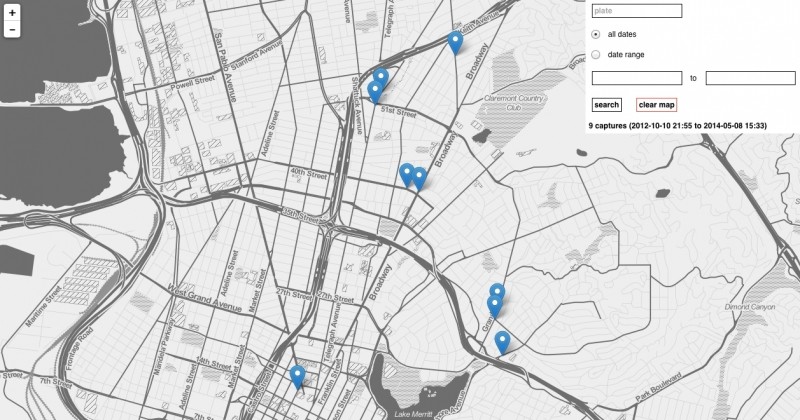Sometimes it's hard to believe how much private data is actually out in the open for just anyone to browse through. As one prime example, Ars Technica recently acquired a massive list of license plate reader information just by making a simple request. In fact, the media outlet obtained the complete Oakland police department's plate database which consists of more than 4.7 million scans from the past 3 years.
It's clear that only a very small fraction of the plate information in the database is related to criminal activity, and Ars was able to use it to draw up a complete picture of an individual's movements over the years. It is to be noted that Ars did all of this with the complete consent of the individuals involved.
The database is accessible to law enforcement with no warrant legally and is widely available upon request, but the fact that such a comprehensive database about innocent people is so readily available is causing issues with many. Some suggest that combining this data with other publicly available information can create an unbelievably realistic record of an unsuspecting individual.
This type of plate databasing has been legal since the mid 80's but many feel it is time to reassess that ruling. As others have mentioned, it might not be a good idea to give every cop with a badge complete access to this kind of information at will, with no warrant needed.
